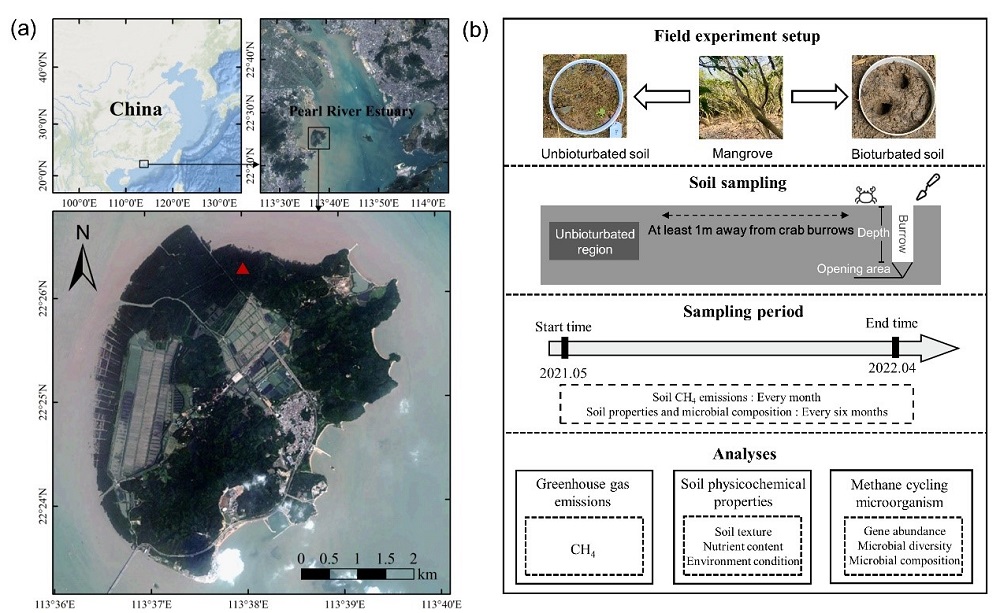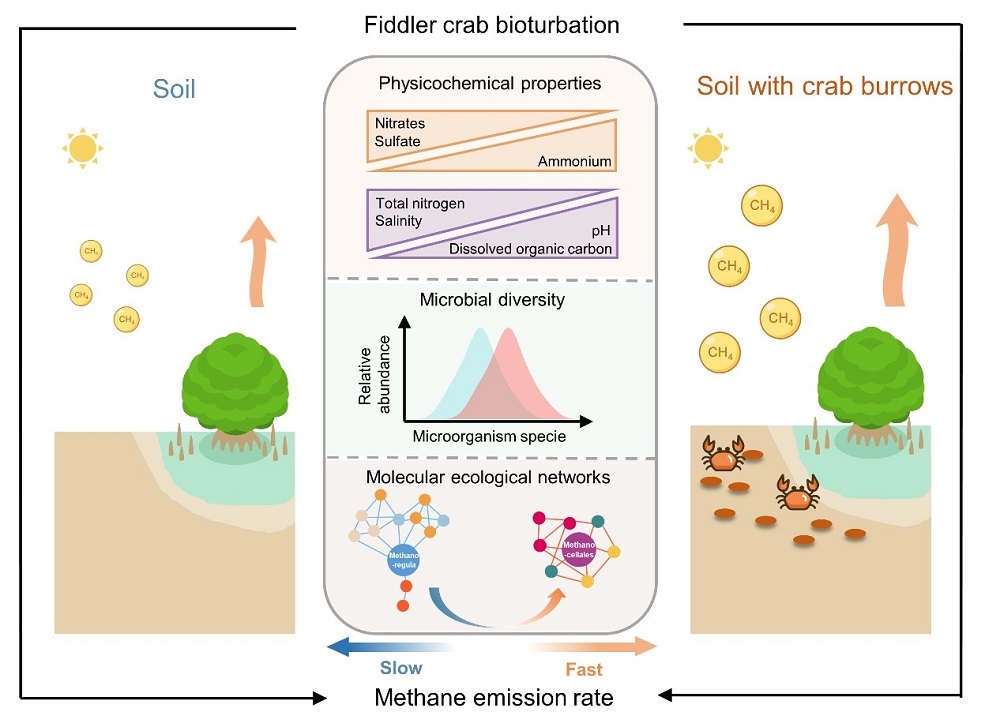Xiaoliang Station reveals the underlying mechanisms of bioturbation on methane emissions in mangrove soils
This study analyzes methane emissions, soil physicochemical properties, and the composition of methane-cycling microbial communities before and after fiddler crab bioturbation in two distinct mangrove communities. The results show that fiddler crab bioturbation increases soil methane emission rates by 86% to 430% compared to undisturbed soils. Soils disturbed by fiddler crabs have higher ammonium ion, pH, and dissolved organic carbon content but lower concentrations of nitrate, sulfate, salinity, and total nitrogen. Additionally, fiddler crab bioturbation increases the abundance of methanogen communities in the soil while reducing the abundance and diversity of methane-oxidizing bacterial communities. Specifically, fiddler crab bioturbation significantly increases the relative abundance of Methanosarcina while reducing the relative abundance of Type II methane-oxidizing bacteria, potentially leading to an overall increase in methane emissions. Overall, fiddler crab bioturbation greatly promotes methane emissions in mangroves. This study also highlights the importance of considering the ecological role of fiddler crabs when assessing the carbon sequestration of coastal wetlands.
The study, titled "Fiddler crab bioturbation stimulates methane emissions in mangroves: Insights into microbial mechanisms," was published in Soil Biology and Biochemistry (IF5 = 10.2). The corresponding author is Faming Wang, a member of the CAS Youth Promotion Association and Director of the Xiaoliang Station, while Guoming Qin is the first author. South China Botanical Garden is the primary institutions and corresponding author affiliations. This study was funded by the National Key R&D Program of China, the CAS Project for Young Scientists in Basic Research, the National Natural Science Foundation of China, Guangdong Basic and Applied Basic Research Foundation, the CAS Youth Innovation Promotion Association, the National Forestry and Grassland Administration Youth Talent Support Program, ANSO collaborative research, Guangdong Key Research Program, Southern Marine Science and Engineering Guangdong Laboratory (Zhuhai), and Guangdong Provincial Key Laboratory of Applied Botany, South China Botanical Garden. Paper link: https://www.sciencedirect.com/science/article/pii/S0038071724001342
Prof. Faming Wang is a biogeochemist in South China Botanical Garden, Chinese Academy of Sciences.E-mail: wangfm@scbg.ac.cn ; Tel :020-37252711.

Fig 1. Experimental design

Fig 2. Conceptual diagram of mangrove soil methane emission impacted by fiddler crab disturbance
File Download: